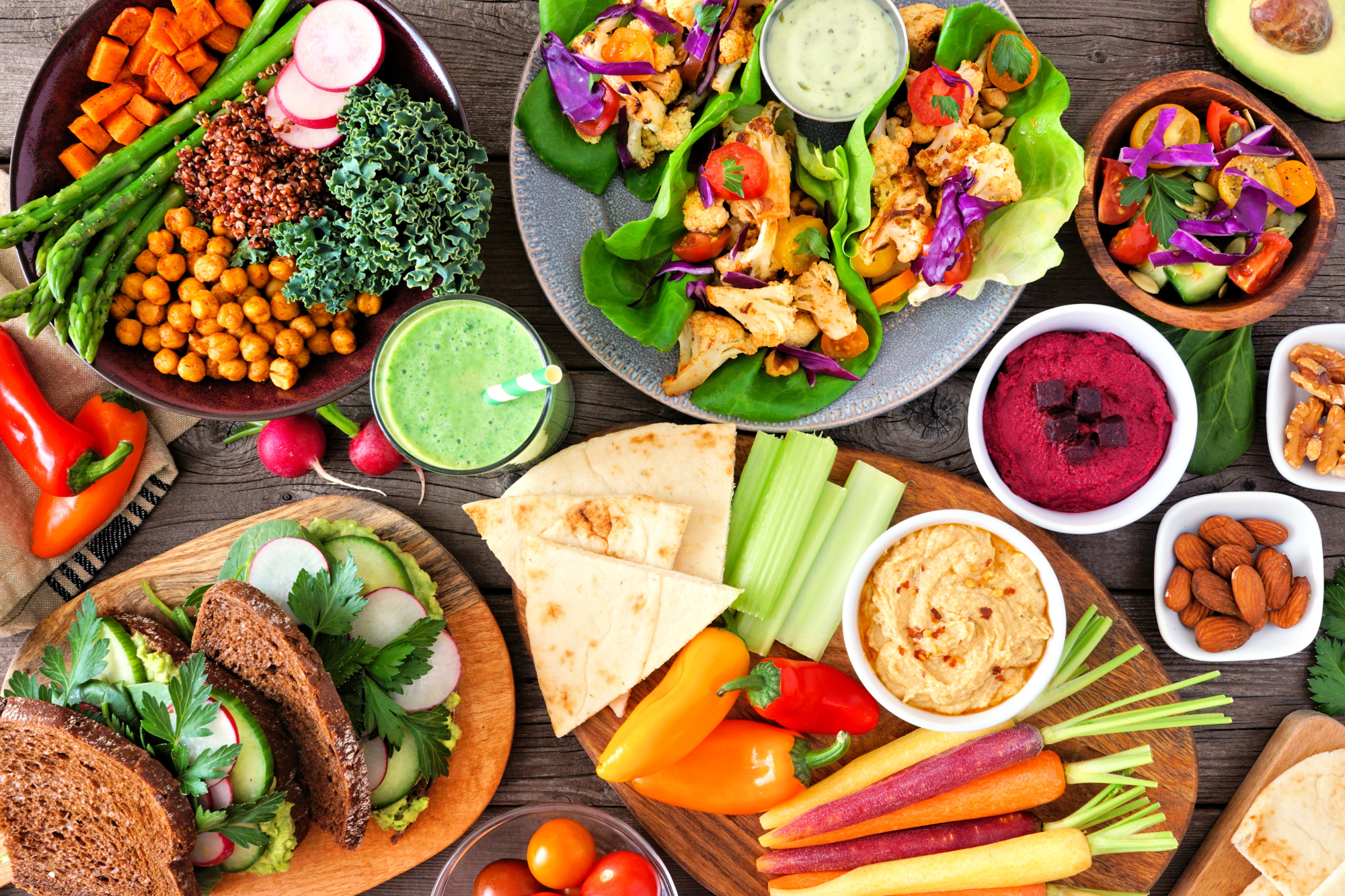Netherlands, Australia, Switzerland and Qatar top the ranking, Germany scores poorly
A new study supported by global food awareness organisation, ProVeg International, has ranked countries in terms of how balanced their dietary guidelines are.
The Netherlands tops the ranking with the most balanced guideline, indicating strong support for sustainable healthy food choices and providing nutrition information that covers the broad spectrum of plant-based diets. Mongolia, on the other hand, shares the lowest rank with a group of Central American and Caribbean countries. Germany is found lower down the rankings as well.
The study will be presented to climate leaders at COP27 – the UN climate conference – in Egypt on Tuesday (November 8th).
Published in Current Developments in Nutrition, the study, called “A Global Analysis of National Dietary Guidelines on Plant-Based Diets and Substitutions for Animal-Based Foods”, assessed 95 guidelines from 100 countries, including states and some subnational regions.
In the study’s “Balanced Food Choice Index” (BCFI), the Netherlands, Australia, Switzerland and Qatar came out as the top countries providing the most balanced dietary guidelines. However, the study demonstrates a considerable information insufficiency in current FBDGs worldwide. The average score of the BFCI is only 33.58 (out of 100 points maximum), leaving ample room for improvement across the globe in the coming years.
“We hope that our findings will give Governments a global overview of what dietary information countries should provide to their citizens because these guidelines have not only a health impact but have environmental and social dimensions too,” lead study author Anna-Lena Klapp said.
“With COP27 upon us, this study will provide governments with a useful reference point. They can see at a glance which countries they should be aspiring to follow. Also, it provides food for thought for those countries that do not yet have a dietary guideline but are thinking about producing one,” Klapp said.
More about the index
The BFCI was developed in order to measure the extent to which existing dietary guidelines encourage sustainable healthy food choices that can, but do not have to, include animal-based products.
Most countries do not provide information to their citizens that cover the broad spectrum of plant-based diets. A total of 38 guidelines (40%) contain a position on vegetarian diets (including vegan diets). Nearly half (45%) of all guidelines already mention plant-based alternatives to meat or animal milk.
Ranking of countries by Balanced Food Choice Index
| Rank | Country (states and subnational regions) |
BFCI | Rank | Country (states and subnational regions) |
BFCI |
| 1 | Netherlands | 94 | 51 | Bulgaria | 30 |
| 2 | Australia | 89 | 51 | Colombia | 30 |
| 3 | Switzerland | 85 | 51 | Cyprus | 30 |
| 4 | Qatar | 83 | 51 | Georgia | 30 |
| 5 | New Zealand | 82 | 51 | Ireland | 30 |
| 6 | United Kingdom | 80 | 56 | Poland | 26 |
| 7 | China (Hong Kong) | 78 | 57 | Greece | 24 |
| 8 | USA | 75 | 57 | India | 24 |
| 9 | Sweden | 74 | 57 | Japan | 24 |
| 10 | Belgium – Flanders | 64 | 57 | Russia | 24 |
| 11 | Turkey | 63 | 61 | France | 23 |
| 12 | Malaysia | 62 | 62 | Republic of Korea | 21 |
| 13 | Italy | 61 | 63 | Algeria | 18 |
| 14 | Sri Lanka | 60 | 63 | Bahrain | 18 |
| 15 | Canada | 59 | 63 | Chile | 18 |
| 15 | Iceland | 59 | 63 | Egypt | 18 |
| 17 | Belgium – Wallonia | 57 | 63 | Iraq | 18 |
| 17 | North Macedonia | 57 | 63 | Jordan | 18 |
| 19 | Israel | 56 | 63 | Kuwait | 18 |
| 19 | Lebanon | 56 | 63 | Philippines | 18 |
| 21 | Slovenia | 55 | 63 | Yemen | 18 |
| 22 | Malta | 53 | 72 | Afghanistan | 15 |
| 22 | South Africa | 53 | 72 | Honduras | 15 |
| 24 | Denmark | 52 | 72 | Oman | 15 |
| 25 | Indonesia | 50 | 72 | Uruguay | 15 |
| 25 | Portugal | 50 | 76 | Austria | 12 |
| 27 | Finland | 49 | 76 | Belize | 12 |
| 27 | Norway | 49 | 76 | Dominican Republic | 12 |
| 29 | Ecuador | 48 | 76 | Kenya | 12 |
| 29 | Thailand | 48 | 76 | Saint Kitts and Nevis | 12 |
| 31 | China | 45 | 81 | Bangladesh | 9 |
| 31 | Latvia | 45 | 81 | Costa Rica | 9 |
| 31 | Namibia | 45 | 81 | Nepal | 9 |
| 31 | Paraguay | 45 | 84 | Barbados | 6 |
| 31 | Spain | 45 | 84 | Cuba | 6 |
| 31 | United Arab Emirates | 45 | 84 | Grenada | 6 |
| 37 | Luxembourg | 44 | 84 | Sierra Leone | 6 |
| 38 | Brazil | 43 | 84 | Venezuela | 6 |
| 39 | Saudi Arabia | 41 | 89 | Guyana | 3 |
| 40 | Fiji | 39 | 89 | Jamaica | 3 |
| 40 | Nigeria | 39 | 89 | Peru | 3 |
| 42 | Argentina | 38 | 89 | Slovakia | 3 |
| 42 | Mexico | 38 | 93 | Antigua and Barbuda | 0 |
| 44 | El Salvador | 36 | 93 | Bahamas | 0 |
| 44 | Guatemala | 36 | 93 | Dominica | 0 |
| 46 | Pakistan | 35 | 93 | Mongolia | 0 |
| 47 | Albania | 33 | 93 | Panama | 0 |
| 47 | Benin | 33 | 93 | Saint Lucia | 0 |
| 47 | Bolivia (Plurinational State of) | 33 | 93 | Saint Vincent and the Grenadines | 0 |
| 50 | Germany | 32 | 93 | Seychelles | 0 |
ENDS
Note to Editors
For media inquiries, email Peter Rixon at [email protected]
To contact lead study author, Anna-Lena Klapp, email: [email protected]
About ProVeg International
ProVeg is an international food awareness organisation working to transform the global food system by replacing conventional animal-based products with plant-based and cultured alternatives.
ProVeg works with international decision-making bodies, governments, food producers, investors, the media, and the general public to help the world transition to a society and economy that are less dependent on animal agriculture and more sustainable for humans, animals, and the planet.
ProVeg has permanent-observer status with the UNFCCC, is accredited for UNEA, and has received the United Nations’ Momentum for Change Award.












